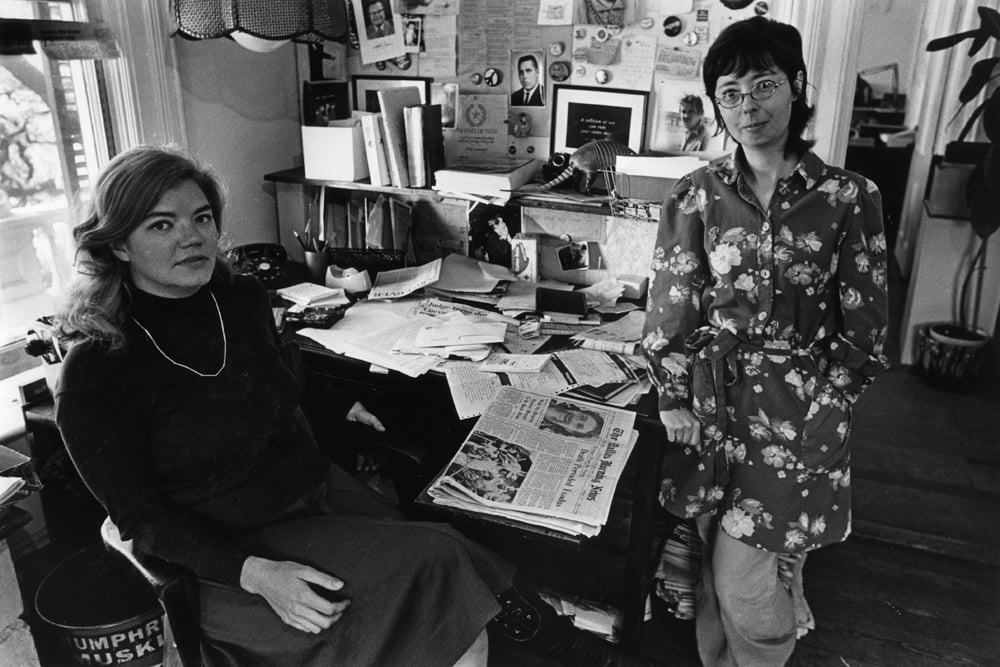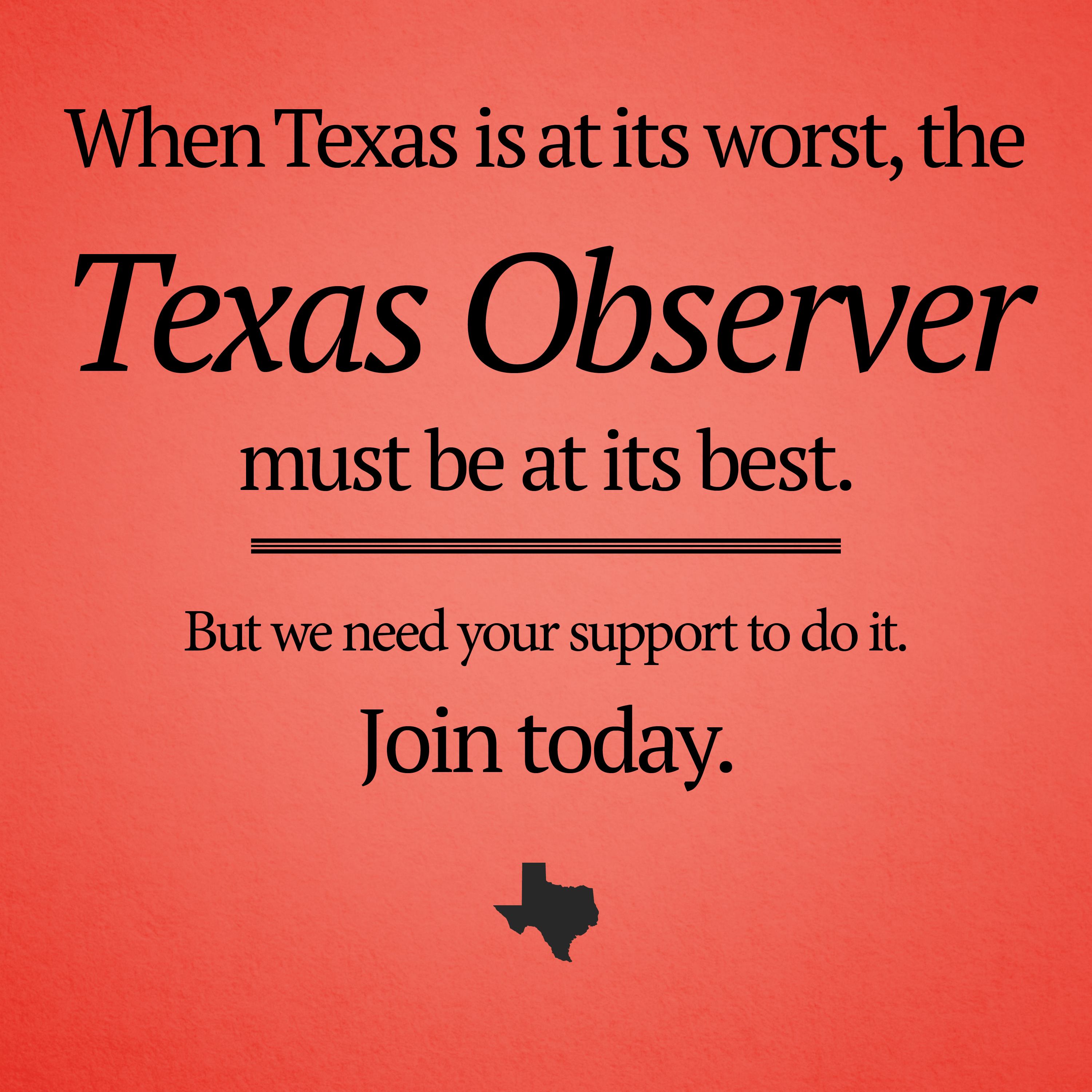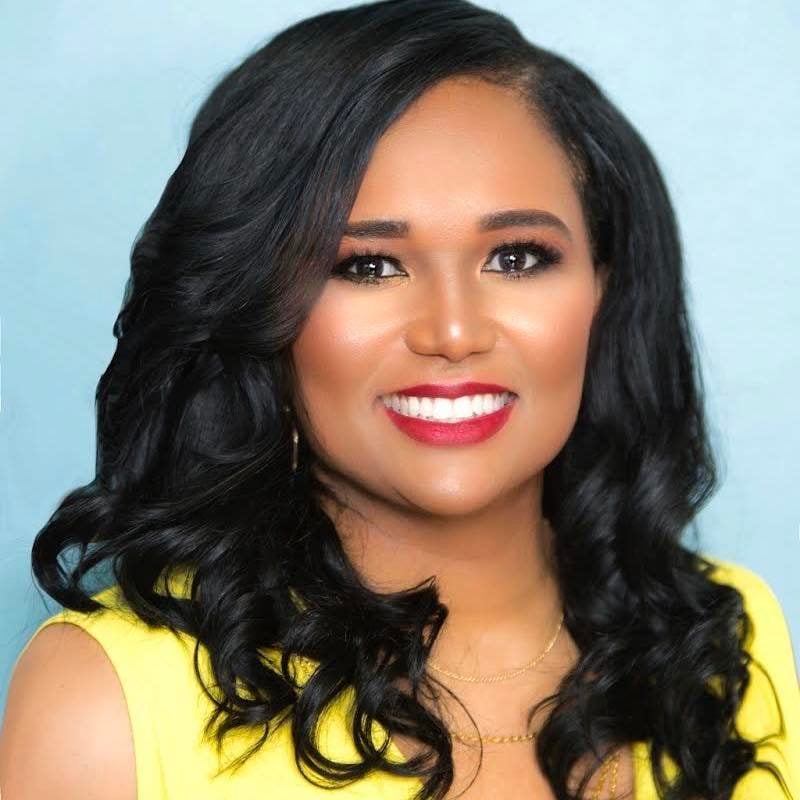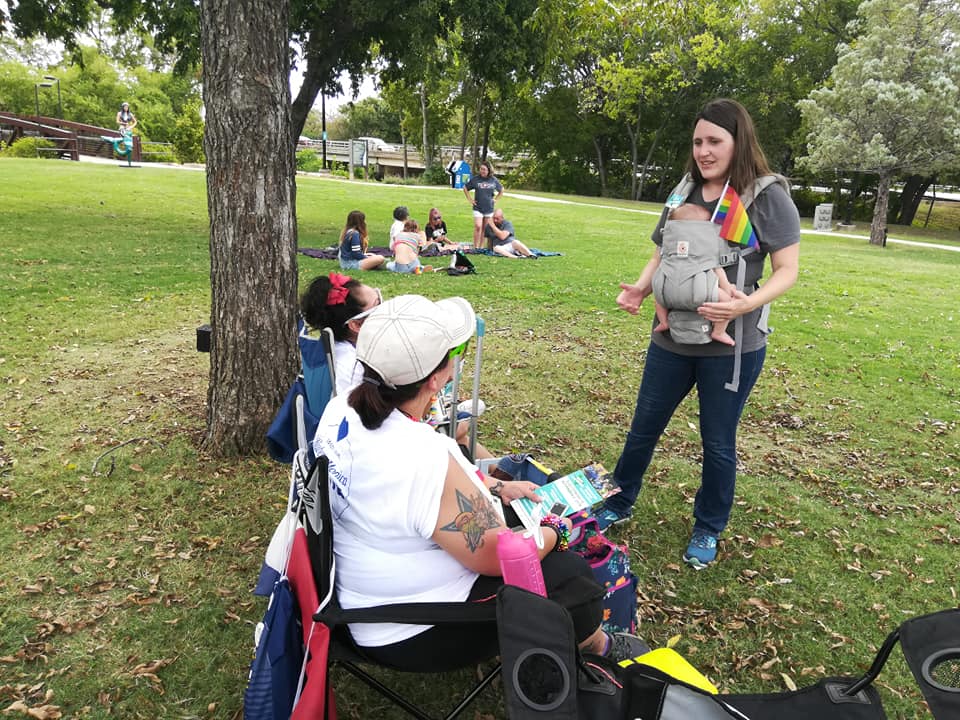
Forging Their Own Way: Kaye Northcott on Texas Observer History
As co-editors of the Texas Observer, Kaye Northcott and Molly Ivins used humor and embedded themselves in the feminist movement.
A version of this story ran in the March / April 2024 issue.
Kaye Northcott learned from her favorite teacher that journalism was about calling out bullshit, which she began doing with enthusiasm as editor of her high school newspaper in Houston. She continued to do so as editor of the University of Texas at Austin’s Daily Texan and later the Texas Observer, which she co-helmed with Molly Ivins starting in 1970. In 1976, she left the Observer to freelance, writing for magazines and public television. Aside from short stints as a press secretary, Northcott continued to work in journalism for decades, including tenures as a political reporter and then an editor for the Fort Worth Star-Telegram and editor of Texas Co-op Power Magazine. Now retired, she lives in Austin.
Editor’s Note: This interview is part of the Observer’s special 70th anniversary year coverage. Support for our 70th-anniversary interview series has been provided by KOOP Radio in Austin, which generously permitted its studios to be used for recordings.
TO: As a college student and elected editor of The Daily Texan in the 1960s, you wrote editorials opposing the Vietnam War. What was that like?
The chairman of the [University of Texas] Board of Regents was Frank Erwin, National Democratic committeeman from Texas. I didn’t like the war in Vietnam, and he was like, “Let’s protect Lyndon [President Lyndon B. Johnson] at every chance.” So he tried to do away with the editorial page.
Erwin decided that the problem was that we didn’t know our place. He set up a blue-ribbon committee to study the Daily Texan and decide how we should be structured. But his mistake was appointing editors from the state’s major daily newspapers to the panel.
They all came, saw us, and said, “We remember our student days. They were wonderful! You’re doing a wonderful job.” And the report said, leave them alone and give them some money. I was making $60 a month, and I got boosted to $65. So, major victory. Frank Erwin didn’t take it well, but he backed off. That pretty much politicized me for the rest of my life. He made it personal.
And fresh out of school, you got a job at the Texas Observer?
I was looking for an outlet where I didn’t have to toe the line, and there was only one such outlet in the state. There was no Texas Monthly or opinion journals or progressive radio stations, so my one shot was the Observer. Fortunately, I’d had very good press because all those daily newspapers were covering what was happening at The Texan. So I just sort of slipped into a job at age 22.
I had spent way too much time writing editorials and not enough time out talking to people, and I was very shy. I had to learn how to actually talk to other human beings. I had a couple of years to work on that before I became editor, and we brought in a second editor, Molly Ivins.
We’d sent word out that we were looking for another editor and we got this letter from her. And it was just so funny—it was about going to summer camp with Luci Baines Johnson. Ronnie Dugger was publisher, and we were just in stitches reading it. We even spent the money to fly her down, and we met at Ronnie’s house for lunch. She brought her own six-pack of beer. I never saw her without a six-pack while she was there—she struggled with her alcoholism, but it never affected her work.
How did you like editing Molly Ivins’ writing?
She came already baked, so to speak. She was already almost fully developed as a writer. So there was not much editing to do, except maybe tone down some of the excesses. I think I saved a couple of libel suits, but she did get into one with Brother Lester Roloff. He was a televangelist, and she had libeled him, and I just hadn’t caught it. Although one thing we established was that it wasn’t libel when she called him a “stud hoss evangelizer.” You can call an evangelist that, apparently.
As a progressive young woman, did you enjoy the Austin vibe back then?
The Observer moved from 24th Street into a house on 7th Street owned by Dave Richards, who had just moved here from Dallas with his wife Ann. Right away this blonde lady came up and said, “Come to a dinner party at my house.” So we were immediately absorbed into the Richards’ circle. I lived with one of the owners of the Armadillo [World Headquarters]. When I wasn’t at the Observer, I would go down there [to the Armadillo] with my papers to edit, and I’d work until the floor started shaking because the music had gotten good and people were stomping around. The Observer by day, the best music in town by night, and on the weekends we went camping with Ann and Dave Richards.
What was the Observer’s readership like outside of Texas back then?
At the Legislature, they immediately noticed Molly, because she was so amusing, and so everybody would read the Observer—we probably had 100 percent readership at the Legislature. Outside of Texas, our influence was by ricochet: You write something, then the Washington Post picks it up, and then it gets more coverage.
Tell me about women’s liberation and what that was like for you.
[Molly and I] both wore blue jeans at the Capitol; we didn’t see why we had to wear dresses. It was the ’70s. We were the only women there, virtually. The only other female reporter I can remember was Kay Bailey Hutchison, who became a senator. Women were coming into their own, and it was new enough that almost everything we did was a first.
In 1972, Molly and I were sleeping in [Frances Tarlton] “Sissy” Farenthold’s hotel room for the Democratic National Convention in Miami, trying to save money. One morning, Molly gets this call from Gloria Steinem, and she says they want to run Sissy for vice president. We became her assistants. We couldn’t figure out where to meet, so we went into the bathroom at the Doral Hotel—with Steinem, Bella Abzug, Betty Friedan, almost every female leader in the U.S. Of course, she didn’t get the nomination, but I got to know all those people, and I was very young, and it was very exciting.
We got a lot of criticism from the daily newspaper reporters for doing that, but I got a great story out of it. We were not a daily paper, we were embedded, and we embedded ourselves a lot.
What was the role of the Texas Observer back then and now?
There were four employees, and I always felt like a farmer with too many acres and no mules. But everyone wanted to work for it because there wasn’t anything else progressive. Many of the dailies’ reporters had pseudonyms and would cover things for us, as well as for their papers, so they could express themselves. We also received series that daily newspapers had decided were too inflammatory and published some of those.
I think it’s extraordinary that the Observer has survived and flourished for this long. Who would have thought it? But there are so many issues to cover, and there’s always a shortage of thoughtful voices, so almost anything they choose is significant. I can only hope that it flourishes for decades and decades to come.



